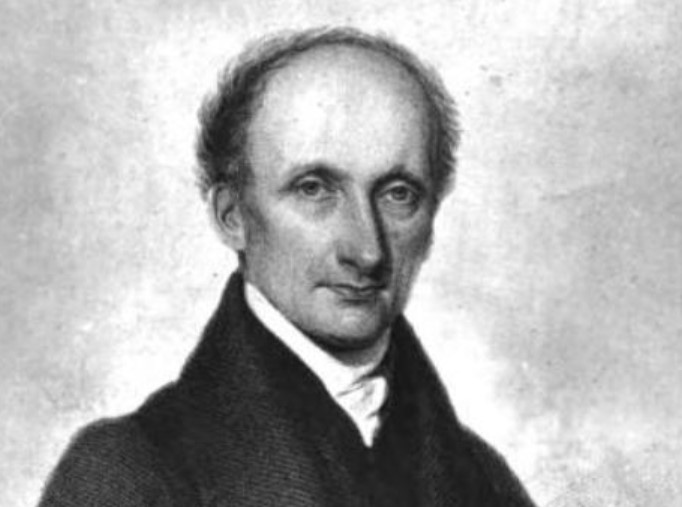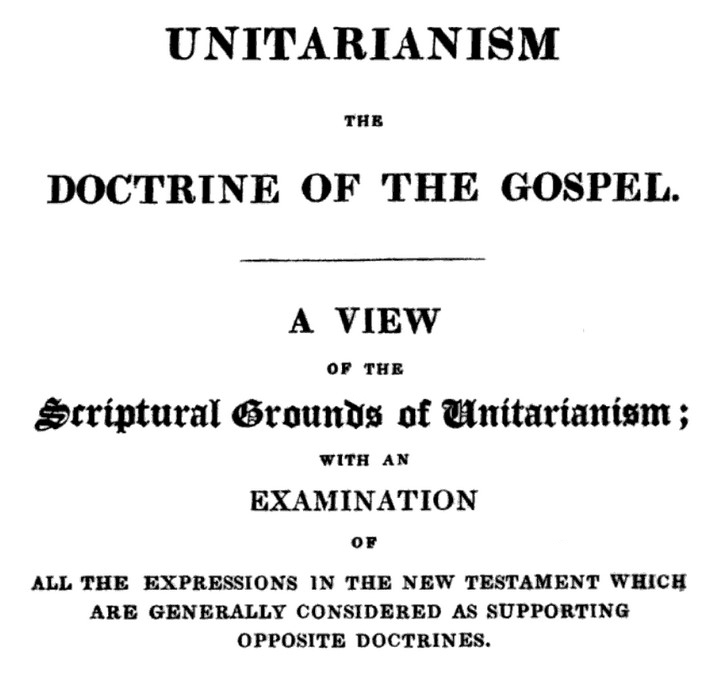Podcast: Play in new window | Download
Subscribe: Spotify | Email | RSS

In this episode you’ll hear interpretations of John 1 by unitarian minister and educator Dr. Lant Carpenter (1780-1840, pictured here) and minister Stephen Nye (1648-1719).
I then explain some concerns I have about the “Socinian” sort of interpretation of the prologue to John, which ends up in a discussion of how John 1 relates to 1 John 1:1-4. We’ll hear the translation of this latter passage in the Improved Version of the New Testament which we learned about in the previous episode. Those who favor this sort of interpretation of John 1 usually think that a consideration of 1 John 1:1-4 helps their case. But I explain why I don’t think it does.
Be sure to listen all the way to the end of this episode to hear about something new from the UCA.
Links for this episode:

- Lant Carpenter, Unitarianism the Doctrine of the Gospel, 3rd ed.
- podcast 288 – “Socinian” approaches to John 1 – Part 1
- podcast 116 – George R. Noyes’s Explanation of Isaiah 9:6 and John 1:1
- podcast 70 – The one God and his Son according to John
- Stephen Nye’s An Accurate Examination of the Principal Texts Usually Alleged for the Divinity of our Saviour is in A Second Collection of Tracts, Proving the God and Father of our Lord Jesus Christ, the only True God
- Unitarian Christian Alliance YouTube Channel
- Who was the first trinitarian?
- Trinity – From Confusion to Clarity
- This week’s thinking music is “Monkeybars” by Andy G. Cohen.


I’m happy to see that Dale is continuing to present some different perspectives on the Prologue from unitarian perspectives. Hopefully, this will lead to some fresh conversation and reintroduce evidence that needs to be taken into consideration.
I also like what Dale said about “we need to find the best explanation.”
Even though Dale seems to struggle with perspectives that seem “new” to him (from a historical perspective), I’m glad that he admits that our knowledge of what ancient Christians believed is “very limited” and we shouldn’t dismiss an interpretation because we don’t have an ancient record of it.
Thanks Dale, I have been enjoying the podcast. I will be putting out my take on John’s prologue to his gospel on my blog soon. But here is a foretaste regarding “in the beginning.” What if John is not referring to either the Genesis creation or the beginning of Jesus’ ministry, but rather to the beginning of redemptive history, i.e. when the ‘word’ first went out declaring God’s promise. I think Paul is using the phrase that way in 2 Thess. 2:13. The ‘word’ would refer to God’s promise of redemption. I think this idea of the ‘word’ can be carried all the way through to v. 14 where Jesus is first mentioned, and it provides a history for the ‘word’. The promise began with Abraham, it then resulted in the birth of the Israelite nation. Some among the nation received the word, others did not. It finally resulted in the events of John’s day – John’s baptism and Jesus of Nazareth coming on the scene, and ultimately his death and resurrection.
Troy, what would the meaning of “all things came through [the word]” mean under this interpretation? It is interesting that in Hebrews 1:2 and 11:3 God creates not creation, as it were, but “the ages” through the Son. It’s as if the creation of different time periods is being suggested.
I would translate it as “through it (the word) all things have come to pass” referring to the whole of redemptive history; from the call of Abraham, the establishment of the Israelite nation, the selection of David as king and the covenant with him, to the appearance of John and then the appearance of Messiah.
Comments are closed.